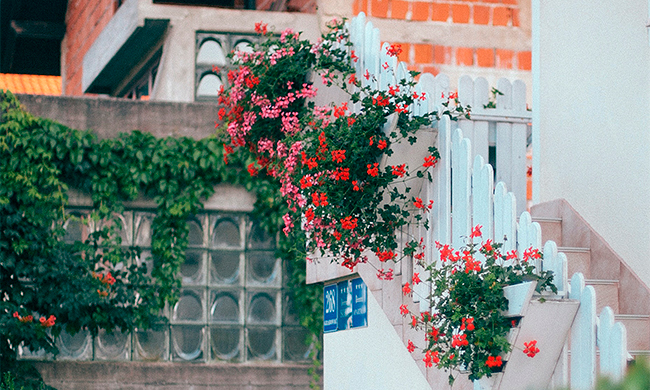

Urban living and lush gardens aren’t as mutually exclusive as one might assume. In fact, it’s possible to cultivate thriving gardens in even the smallest spaces.
The first step toward creating a successful small garden space is planning. Sketching out your garden area with a clear understanding of the actual dimensions is important. This allows you to allocate adequate growing space for the vegetation you choose and prevent overcrowding.
Part of your planning should also take climate into account. If the sun reaches your garden area, knowing what time the sun typically hits matters. Some plants are poorly equipped to handle the strength of direct afternoon rays.
Other matters to consider are the soil quality and whether it is adequate to nourish vegetation. If not, you may need to excavate and refill your planting areas with nutrient-rich gardening soil. Access to water is also a concern; if you’ll be forced to water by can, avoid choosing plants that would better benefit from a thorough hose soaking.
As you begin planning the actual contents of your garden, don’t hesitate to blend edibles with beauty. Many herbs offer attractive textures and colors that can add variety to a colorful selection of flowering plants. Edible plants such as strawberries offer color from blooms (and later brightly hued fruit), as well as trailing greenery that looks pretty along the edges of potted containers.
If your goal is color, give consideration to the blooming season for your selected plants. Unless you plan to enjoy your garden for just a short season, choose a variety of plants and flowers that bloom throughout your region’s entire growing season.
Especially in the smallest garden spaces, it’s smart to make the most of vertical space. Use a trellis or other structure to encourage vining vegetation to grow upward rather than outward. Hanging baskets or buckets are ideal for inverted growth of plants such as tomatoes or peppers, and shelving or tiered plant stands are handy for creating more plant real estate in smaller garden spaces.
Beautiful gardens need not be limited to those with expansive lawns in rural communities. Though smaller in scale, urban gardens can deliver equal beauty and a surprising volume of edible bounty with proper preparation and design. Find more tips at eLivingtoday.com.
Photo courtesy of Pexels
Family Features







